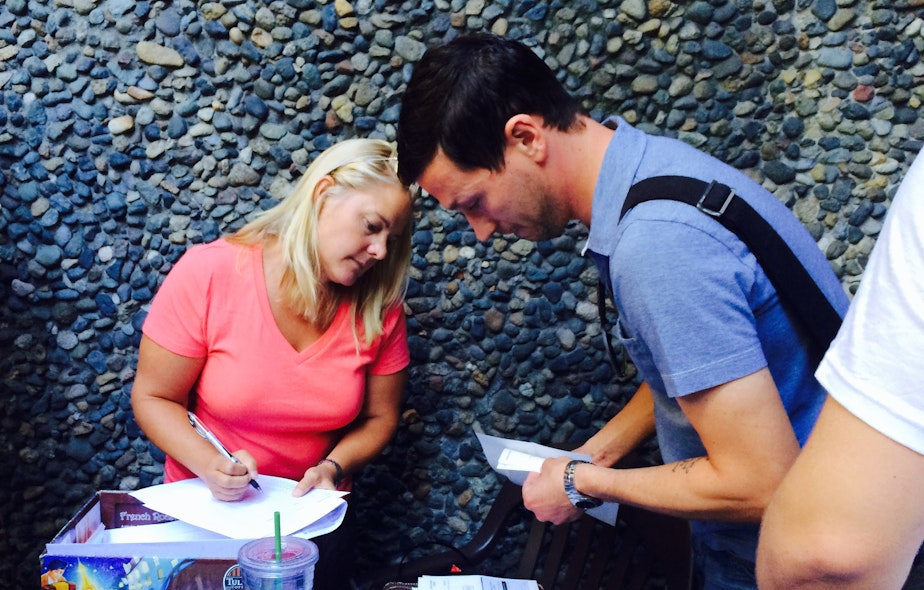Thousands Of Foreclosures Sit Off Market In Seattle Area

The Seattle-area housing market could use an injection of inventory. It’s on a tear right now, fueled by high demand and low supply, and hooked on low-interest rates.
And there is a potential supply of lower-priced homes in the region. Those are the 4,300 foreclosed homes from Everett to Tacoma that are now owned by banks, according to RealtyTrac.
More than 4,000 houses added to the market would be a rush – that would be two-thirds of what the region sells in a single month.
But these houses are just sitting around.
“It’s not uncommon for us to see houses that have been in foreclosure for five, six years, where the banks haven’t done anything,” said Jim Melgard, who works for Vestus. Vestus is a real estate company that buys houses at county auctions.
“Banks are slowly working through them, and you’re seeing them one at a time,” he said.
When the houses do go on the market, they tend to be snatched up by real estate developers who flip them for a pretty penny.
Seattle is one of the top cities in the country for profit on real estate flips, according to the real estate analysis firm RealtyTrac.
On a recent evening, investors met at Caliber Real Estate on the Eastside. There they scoured the market for cheap houses to flip. Zack Lazo was the agent in charge on this particular night.
“The dirtier the better, the scarier the better,” Lazo said. “That just allows us to buy for a lower price.”
These investors buy the houses with cash and transform them into properties for which people would pay top dollar.
But Lazo said investors are running out of neighborhoods.
“It’s getting really hard to buy something that’s low enough to justify buying it and still being able to eke out some sort of profit,” he said.
Governments and nonprofits once saw foreclosed homes owned by banks as an opportunity – a pool of homes for lower-income families.
Related: Even The Wealthy Struggle To Buy A House In Seattle Area
But the nonprofits soon found they couldn't buy many houses, even with government help.
“One of the biggest challenges is just staying ahead of the speculators that are coming in,” said Kevin Hunter, who heads the King County branch of Habitat for Humanity. “We unfortunately aren’t able to move as quick as them.”
Homestead, another nonprofit that houses families, says it has only managed to buy one bank-owned property since the recession.
Mike O’Rourke is a senior vice president of local lender Washington Federal.
He said there’s no worse process he knows of than trying to buy a foreclosed home from a big lender.
He said banks are inflexible: They don't negotiate or offer financing to fix up their own houses.
“What you end up with is that intermediary that comes along and grabs them,” O’Rourke said. “The good news is it gets a better home on the market. The bad news is it takes a low-priced home off the market.”
The big banks say they are trying to improve. Wells Fargo says it now fixes its homes before selling them, so that future owners aren't buying total junkers.
The bank also says that it gives nonprofits a week’s head-start when houses come available.
But Hunter said that Habitat needs more than a week to buy a house. And even then, he said, they’re still too expensive. He would like banks to come to the table with them to discuss the problem.
“There’s got to be some ways that I think can incentivize them to make sure that nonprofits can have access to these lots and these homes, so they’re part of the solution and not part of the continuing crisis,” he said.
This story was published originally on July 7, 2015.
